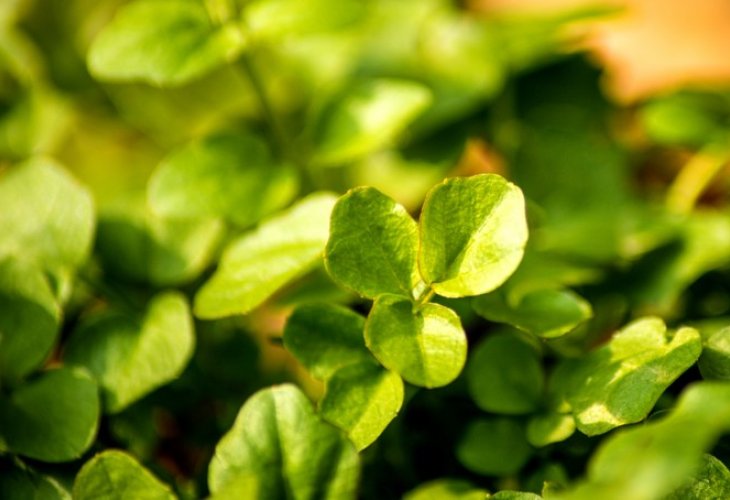Skip the Prozac: A Natural Antidepressant Found in This Common Plant. How is It Related to the Sages?
This common plant, often sold in grocery stores as a salad addition, contains a natural antidepressant that everyone should know about. And how is it connected to Rav Papa, Rabbi Meir, and Rabbi Yochanan? You will be surprised!
 Watercress (Photo: Shutterstock)
Watercress (Photo: Shutterstock)
Many of us encounter it on the street, but few know that this very common plant from the cruciferous family is a natural antidepressant. Meet: Watercress (also known as cress) is 'equipped' with especially high levels of folic acid - which, besides supporting fetal development in pregnant women, is also linked to feelings of sadness and mood changes.
A study published about a decade ago, which included 19 additional studies on the link between folic acid and depression, found that appropriate levels of folic acid intake have a long-term impact on improving our mood, as it affects the creation of the neurotransmitter serotonin.
Studies touching on the intersection between the psychiatric and biological worlds noted that changes in serotonin function lead to changes in sensitivity to depressive moods, and the aim of the extensive study was "to draw attention to what is known about the epidemiology and biochemical and clinical effects of folic acid deficiency, among other things, to consider the recent recommendation that patients with depression should be treated with 2 mg of folic acid."
In traditional medicine, entire nations (China, India, and even within Judaism) tended to believe that watercress could help in healing internal liver diseases, detoxifying the blood, dissolving kidney stones, improving gallbladder function, enhancing vision issues, and more.
Watercress also appears in the Bible as 'cress,' and the sages linked it to the 'areth' which is also mentioned there, among other things, in the description of the famine that prevailed in the land during the days of Elisha. "Rabbi Meir said, Areth is cress. Rabbi Yochanan said: Why is it called Areth? Because it enlightens the eyes. Rav Huna said: Whoever finds cress, if he can eat it, he should eat it, and if not, he should apply it to his eyes."
Why 'apply it to his eyes'? Perhaps, in ancient times, cress was used for eye remedies, as Rav Sheshat, who was blind, reported that cress helps alleviate the eye pain he suffered from.

